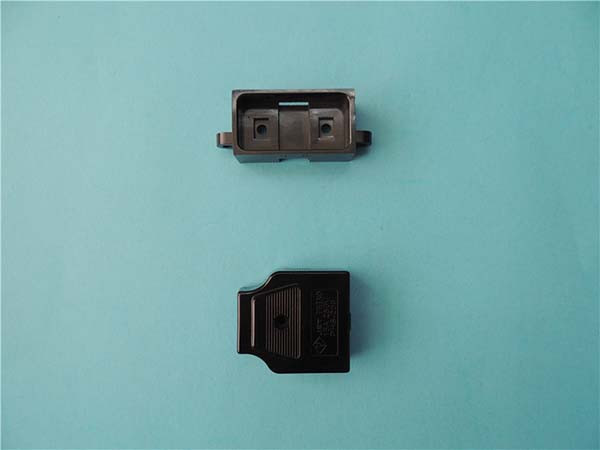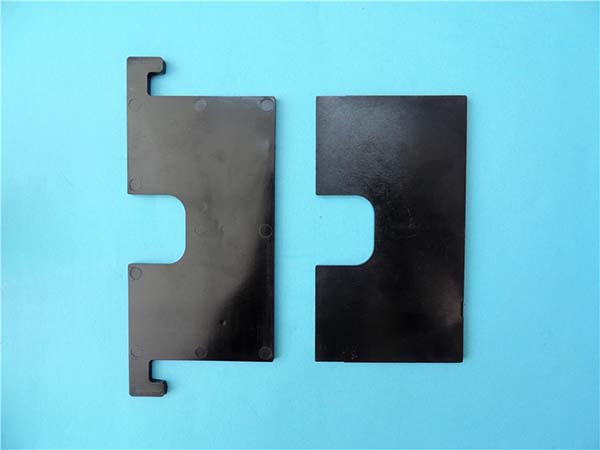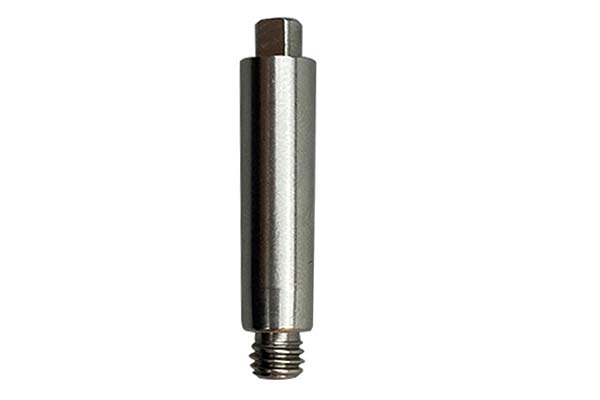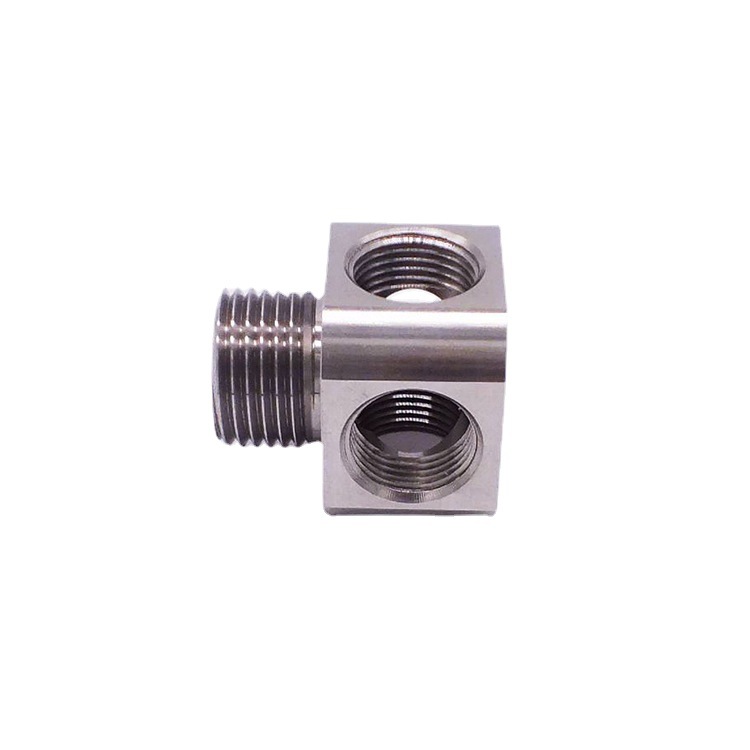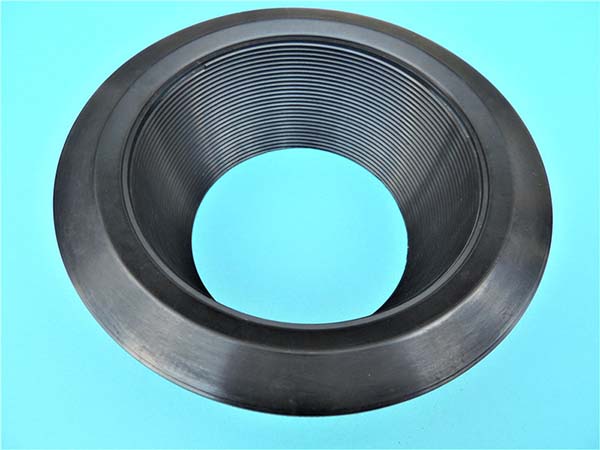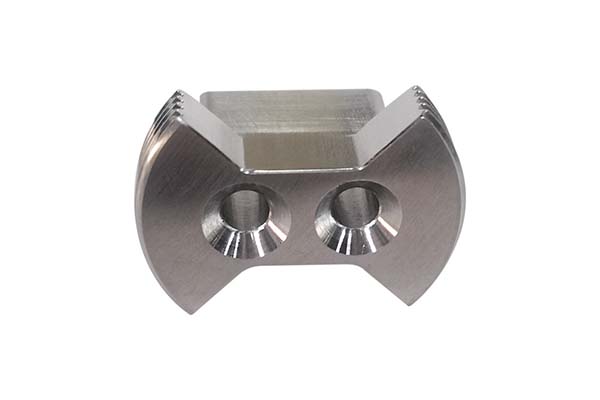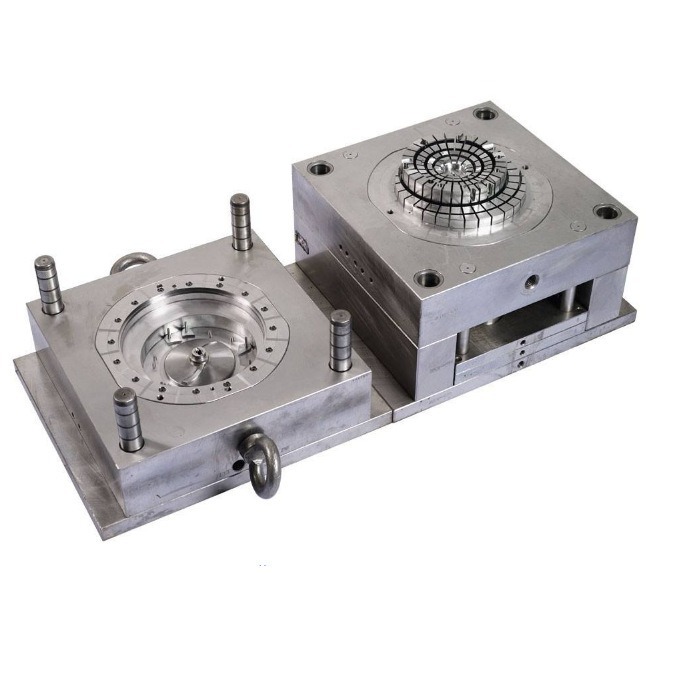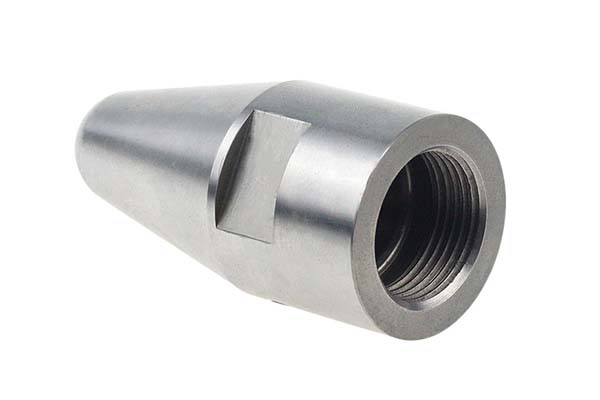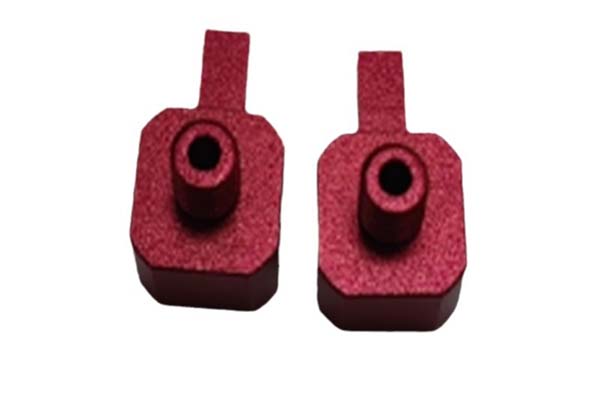1. Introduction
1.1 Definition of CNC Machining
CNC machining, short for Computer Numerical Control machining, is a revolutionary manufacturing process that has transformed the industrial landscape. At its core, CNC machining involves the use of pre-programmed computer software to control the movement of factory tools and machinery. This automated approach replaces traditional manual machining methods, where operators directly controlled the cutting tools.
The high precision achievable by CNC machining is one of its most significant advantages. Modern CNC machines can routinely achieve tolerances in the range of ±0.001 inches (±0.0254 mm) or even better, making them ideal for applications where tight tolerances are crucial, such as in the aerospace, automotive, and medical industries. In contrast, traditional manual machining methods often struggle to achieve such consistent and precise results, especially when dealing with complex geometries.
Moreover, CNC machining offers exceptional repeatability. Once a program is set up and optimized, the CNC machine can produce identical parts over and over again with minimal variation. This is in stark contrast to manual machining, where human factors such as fatigue, skill level, and concentration can lead to significant differences between parts.
In summary, CNC machining is a highly advanced and precise manufacturing process that combines the power of computer technology with the capabilities of modern machine tools. Its ability to produce complex, high - precision parts with efficiency and consistency has made it an essential technology in today's global manufacturing economy. And Europe, with its long - standing reputation for engineering excellence and technological innovation, has emerged as a global leader in the field of CNC machining precision and innovation, which Yigu Technology will explore in more detail in the following sections.
3. Precision in European CNC Machining
3.1 Advanced Machinery and Equipment
Europe is at the forefront when it comes to the utilization of advanced machinery and equipment in CNC machining. High - precision machine tools are the cornerstone of achieving exceptional precision. For instance, Swiss - made precision machine tools are renowned globally for their unrivaled accuracy. Brands like Fehlmann offer high - speed, high - precision CNC machines. Their five - axis machining centers, such as the Fehlmann VERSA®643/645, can achieve positioning accuracy within 0.003 mm, making them ideal for manufacturing complex and high - tolerance parts.
Five - axis machining centers are another technological marvel that has revolutionized precision in CNC machining. In a five - axis setup, in addition to the traditional linear axes (X, Y, and Z), there are two rotational axes (usually A and B or B and C). This allows the cutting tool to approach the workpiece from multiple angles. For Yigu Technology example, in aerospace component manufacturing, the blades of jet engines often have complex curved surfaces. With a five - axis machining center, the machine can precisely carve these intricate shapes in a single setup. The added flexibility reduces the need for multiple setups, which not only saves time but also minimizes cumulative errors that could occur during re - positioning of the workpiece.
German - made DMG MORI machines are also a prime example of advanced CNC technology. Their multi - tasking machines are equipped with state - of - the - art control systems that can perform multiple machining operations simultaneously. This not only improves productivity but also enhances precision as the machine can maintain consistent accuracy throughout the different machining processes without the need to transfer the workpiece to different machines.
3.2 Stringent Quality Control Measures
Yigu Technology European CNC machining companies adhere to some of the most stringent quality control measures in the world. These measures are implemented at every stage of the production process, from raw material inspection to the final product assessment.
At the raw material stage, strict inspection procedures are in place. For example, before using a metal alloy for machining, its chemical composition, mechanical properties, and surface quality are thoroughly tested. Only materials that meet the exact specifications are approved for use. This ensures that the final product has the required strength, durability, and dimensional stability.
During the machining process, in - process inspections are carried out regularly. Operators use precision measuring instruments such as coordinate measuring machines (CMMs) to check the dimensions of the part at various intermediate stages. CMMs can measure the coordinates of points on a workpiece with extremely high accuracy, typically in the micrometer range. If any deviation from the design specifications is detected, the machining process is halted, and adjustments are made immediately. This could involve recalibrating the machine, changing the cutting tools, or modifying the machining parameters.
After the machining is complete, a comprehensive final inspection is conducted. The finished product is inspected for dimensional accuracy, surface finish, and any potential defects. European companies often follow international quality standards such as ISO 9001, which provides a framework for quality management systems. Meeting these standards ensures that the products are of high quality and reliable. In addition to ISO standards, some industries, such as aerospace and medical, have their own specific and even more rigorous quality requirements. For example, in aerospace, parts must pass strict non - destructive testing methods, like ultrasonic testing and X - ray inspection, to detect any internal flaws that could compromise the safety and performance of an aircraft.
3.3 Comparison of Precision with Other Regions (Table)
The following Yigu Technology table provides a comparison of the average positioning and repeat positioning accuracy of CNC machines in Europe, North America, and Asia (excluding Japan), based on industry research and data from machine tool manufacturers.
| Region | Average Positioning Accuracy (mm) | Average Repeat Positioning Accuracy (mm) |
| Europe | ±0.002 - ±0.005 | ±0.001 - ±0.003 |
| North America | ±0.003 - ±0.006 | ±0.002 - ±0.004 |
| Asia (excluding Japan) | ±0.005 - ±0.010 | ±0.003 - ±0.005 |
As shown in the table, Europe generally has a higher level of precision in CNC machining compared to North America and Asia (excluding Japan). The superior positioning and repeat positioning accuracy in Europe enable the production of parts with tighter tolerances, which is crucial for industries such as aerospace and high - end automotive manufacturing. The smaller error margins in Europe mean that parts can be produced with more consistent quality, reducing the need for post - processing and rework, and ultimately leading to higher - quality end - products.
4. Innovation in European CNC Machining
4.1 Technological Advancements (Automation, AI, IoT)
Automation has become a cornerstone of innovation in European CNC machining. European manufacturers have been at the forefront of integrating robotics and automated processes into CNC machining operations. For Yigu Technology example, in the automotive industry, companies are using automated CNC machining cells. These cells can load and unload workpieces, change cutting tools, and perform machining operations with minimal human intervention. A study by the European Machine Tool Industry Association (CECIMO) found that automated CNC machining cells can increase productivity by up to 40% compared to traditional manual - operated setups.
The integration of AI in CNC machining is also revolutionizing the industry. AI - powered systems can analyze real - time data from sensors on the CNC machine. This data includes factors such as spindle load, tool wear, and vibration. By analyzing this data, AI algorithms can predict tool breakage and recommend optimal machining parameters. For instance, German - based DMG MORI has developed AI - enabled CNC machines that can self - optimize the machining process. These machines can adjust cutting speeds and feeds in real - time based on the material being processed and the current state of the cutting tool, leading to improved surface finish and longer tool life.
4.2 Research and Development Investments
European companies are investing heavily in research and development (R&D) to drive innovation in CNC machining. According to industry reports, major European CNC machine manufacturers allocate an average of 5 - 8% of their annual revenues to R&D. For example, GROB, a leading European manufacturer of modular machine tools, invests a significant portion of its income in R&D. This investment has led to the development of advanced machine tool technologies. Their R&D efforts have focused on improving the precision, speed, and flexibility of their machines. By constantly researching new materials, manufacturing techniques, and control systems, GROB has been able to introduce cutting - edge products that meet the evolving needs of industries such as aerospace and medical device manufacturing.
4.3 New Product Developments and Their Impact
European CNC machining companies have introduced several innovative products in recent years. DMG MORI's advanced multi - tasking machines are a prime example. These machines can perform multiple machining operations, such as milling, turning, and drilling, in a single setup. This reduces the need for multiple machines and multiple setups, which in turn reduces production time and cost. In the aerospace industry, where the production of complex components requires multiple machining operations, DMG MORI's multi - tasking machines have significantly improved the efficiency of component manufacturing.
Another notable product development is GROB's modular machine tools. These tools are highly customizable, allowing manufacturers to configure the machine according to their specific production requirements. This modular approach not only provides flexibility but also reduces the overall cost of ownership as manufacturers can upgrade or modify the machine as their needs change. In the medical device manufacturing industry, where the production of small, high - precision components requires flexibility in machining processes, GROB's modular machine tools have found widespread adoption.
5. Applications Driving Precision and Innovation
5.1 Aerospace Industry
The aerospace industry is one of the most demanding sectors when it comes to precision manufacturing, and it has been a major driver of innovation in European CNC machining. Aircraft and spacecraft components need to withstand extreme conditions, including high temperatures, intense pressure, and high - speed vibrations. For Yigu Technology example, engine components such as turbine blades in jet engines operate in an environment where temperatures can exceed 1,500°C and rotational speeds can reach tens of thousands of revolutions per minute.
To meet these stringent requirements, European CNC machining companies have developed advanced techniques. High - speed milling with specialized cutting tools made from materials like carbide with advanced coatings is commonly used to machine complex shapes in titanium and nickel - based alloys, which are widely used in aerospace components due to their high strength - to - weight ratio and heat resistance. The use of five - axis and even multi - axis machining centers is crucial in aerospace. These machines can produce parts with complex geometries, such as the intricate internal cooling channels in turbine blades, which are essential for maintaining the engine's performance and efficiency.
The aerospace industry also demands the highest levels of quality control. European aerospace manufacturers follow strict international standards, such as the Aerospace Standard (AS) series. Each component undergoes multiple inspections, including non - destructive testing methods like eddy current testing to detect surface - breaking defects and computed tomography (CT) scanning to examine internal structures. The precision and quality of European - made aerospace components have made them highly sought - after in the global market, contributing to the region's leadership in CNC machining.
5.2 Automotive Industry
The automotive industry in Europe has been a significant catalyst for the development of CNC machining technology. With the increasing demand for fuel - efficient and high - performance vehicles, automotive manufacturers require components that are both lightweight and highly precise.
In engine manufacturing, CNC machining plays a vital role. Components like engine blocks, cylinder heads, and crankshafts need to be machined with extreme precision. For Yigu Technology example, the bores in an engine block must have extremely tight tolerances to ensure a proper fit with the pistons. A deviation of even a few micrometers can lead to issues such as poor fuel efficiency, increased emissions, and reduced engine lifespan. European CNC machining companies use advanced turning and milling processes to achieve the required precision.
The production of lightweight components is another area where CNC machining has made a significant impact. The use of lightweight materials such as aluminum and magnesium alloys in automotive parts helps to reduce the overall weight of the vehicle, improving fuel efficiency. CNC machining allows for the precise shaping of these materials, creating complex structures that maintain strength while minimizing weight. For instance, CNC - machined aluminum alloy suspension components are not only lighter but also offer better performance in terms of handling and durability compared to their heavier counterparts.
Automotive manufacturers in Europe are also at the forefront of implementing automation in CNC machining. Automated production lines with CNC machines can produce large volumes of parts with consistent quality. These lines can be quickly reconfigured to produce different components, enabling manufacturers to respond to changing market demands efficiently. This combination of precision, lightweight component production, and automation in the automotive industry has driven the continuous improvement of CNC machining technology in Europe.
6. Conclusion
Europe's leadership in CNC machining precision and innovation is undeniable. Through the use of advanced machinery, stringent quality control measures, and a focus on technological innovation, Europe has set the standard for the global CNC machining industry. The high - precision capabilities demonstrated in European CNC machining have enabled the production of components that meet the most demanding requirements of industries such as aerospace, automotive, and medical.
The continuous investment in research and development has led to a steady stream of new product developments and technological advancements. Automation, AI, and IoT integration have not only improved the efficiency and precision of CNC machining but have also opened up new possibilities for smart manufacturing and Industry 4.0 implementation.
FAQs
1 What are the main factors contributing to Europe's leadership in CNC machining precision?
The main factors include the utilization of advanced machinery and equipment such as high - precision Swiss - made machine tools and five - axis machining centers from European manufacturers. Stringent quality control measures implemented at every stage of production, from raw material inspection to final product assessment, also play a crucial role. Additionally, the high - skill level of the workforce, with a strong emphasis on technical education and training in Europe, ensures that operators can effectively use the advanced equipment and maintain high - precision machining processes.
2 How do European CNC machining companies innovate to stay competitive?
European CNC machining companies invest heavily in research and development, allocating an average of 5 - 8% of their annual revenues to R&D. They focus on technological advancements like the integration of automation, AI, and IoT. For Yigu Technology example, they develop automated machining cells, AI - enabled machines for self - optimizing machining processes, and IoT - connected machines for remote monitoring and predictive maintenance. These companies also introduce new product developments such as advanced multi - tasking machines and modular machine tools to meet the evolving needs of industries.
3 What industries in Europe benefit the most from advanced CNC machining?
The aerospace, automotive, and medical industries in Europe benefit significantly. In the aerospace industry, CNC machining enables the production of high - precision components for jet engines and aircraft structures, ensuring safety and performance. The automotive industry uses CNC machining for engine component production, lightweight part manufacturing, and automation in production lines. In the medical industry, advanced CNC machining is crucial for manufacturing implants with precise fits and surgical instruments with complex designs, meeting strict quality and safety requirements.
